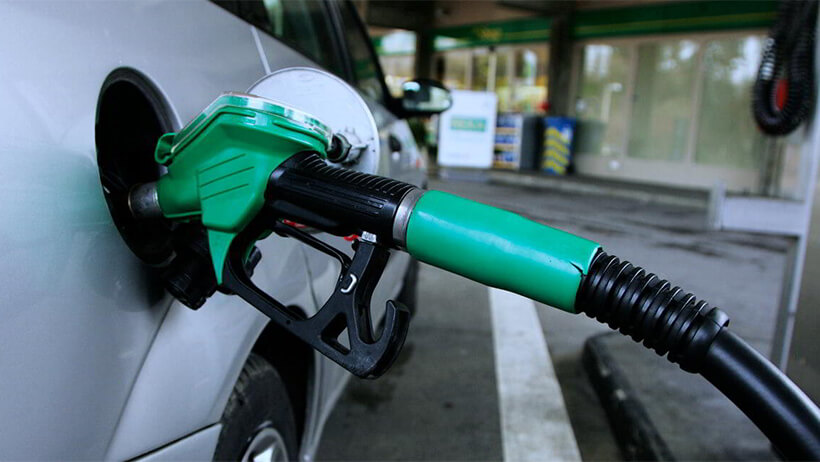TUESDAY, 30th OCTOBER 2018: With yet another fuel price hike on the horizon it feels like there will be little relief from escalating prices â?? not only at the fuel pumps but all the way down the value chain. Consumers will soon be feeling the pinch and are understandably anxious to mitigate the impact that fuel hikes will have on oneâ??s disposable income.
The more obvious solutions include downsizing fuel-guzzling vehicles for more energy-efficient models, opting into carpools where the cost of fuel can be shared, and public transport. These might be winners in the savings department but are not a viable option for everyone.
If youâ??re one of the many motorists looking to do the best you can with the wheels you have, here are a few helpful hints to make those precious litres go a little further.
Drive with fuel consumption in mind
While seemingly harmless, some driving habits actually hike up your vehicleâ??s fuel consumption. Sensible driving translates into cents â?? and eventually Rands â?? in your pocket.
- Go easy on the accelerator
Maintaining the speed limit or just below not only saves you from unnecessary traffic fines (bye-bye disposable income!) but also uses less fuel. A lighter touch on your accelerator also means you only supply what your engine needs at any given time. - Be kind to your brakes
Try and avoid riding your brakes as this creates unnecessary drag as well as wear and tear on your braking system. Slamming on brakes and sudden stops are hard on your vehicle, which has to use more energy (and fuel) to bring it to a halt. Be mindful at intersections and in traffic, maintain safe following distances, and make use of your vehicleâ??s momentum. Youâ??ll be safer in the long run and have to replace brake pads and other components less often. - Gearing up
Gears were designed to help engines expend less effort for higher output. The lower the gear, the harder an engine has to work to maintain its speed and the more fuel itâ??ll use. If youâ??re driving a manual vehicle, use the highest gear possible and go easy on the revs. - Know your route
This doesnâ??t just mean knowing where youâ??re going ahead of time and avoiding unnecessary detours. It also involves assessing your options â?? especially on routes travelled most frequently â?? and choosing the most economical route. A shorter route doesnâ??t always equate to less fuel. Fewer starts and stops, less congestion and more constant speeds do. Investigate mobile apps that help monitor traffic flow to keep your trip fuel-friendly and time-wise.
Optimise your vehicle
A vehicle that operates in the way the manufacturer intended it to will be more economical on fuel. Itâ??s important to take the time to understand what your vehicle needs to operate at its best, from the ideal fuel and lubricants to optimal tyre pressure. Every car is different.
A great place to start is your ownerâ??s manual â?? or even better â?? an all-in-one service provider, such as Auto Care Diagnostics (ACD) who can walk you through all the key points and offer you sound advice on keeping your car in great shape.
- Streamline
Vehicles are designed with certain aerodynamics in mind. Anything that interferes with this causes strain â?? and creates higher fuel consumption. Think roof racks and sunroofs, trailers and bike racks. While convenient, these items could be literally holding you back. Only use when absolutely necessary. - Maintain tyres
About 20 percent of fuel goes towards overcoming friction between the car and the road, which makes tyres doubly important. Ensuring optimal pressure and tread as well as keeping wheels properly aligned will help prevent unnecessary spend at the pumps. - Lighten the load
If you want to burn calories, you add weight to your workout. Adding unnecessary weight to your vehicle essentially equates to the same thing, except,instead of burning calories, your car burns fuel. Take the time at the end of each trip to offload anything you donâ??t need and avoid using your boot and back seat as storage. - Keep your vehicle tuned up
Worn brake pads, clogged filters, damaged gears, faulty sparkplugs and aging car batteries are all silent killers of fuel economy. Regular services and tune-ups to keep your engine running as itâ??s intended to, keeping consumption to a minimum.
When the cost of petrol spikes, motorists might be tempted to stretch the time between services, especially for vehicles operating outside of its motor plan. However, these perceived savings are quickly swallowed up by a number of fuel inefficiencies.
Studies show that your vehicle could consume up to 30 per cent more fuel if proper maintenance is not performed on a regular schedule. So â?? in addition to driving more efficiently â?? why not adopt a preventative approach and get the condition of your vehicle assessed to save you money in the long term.


